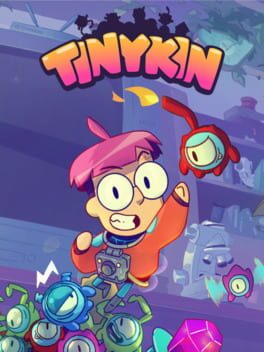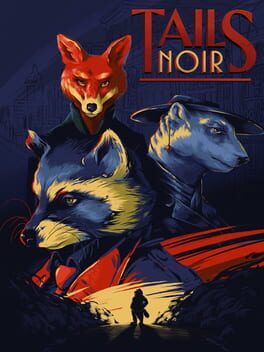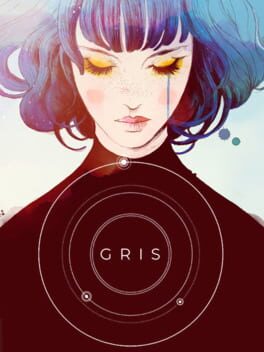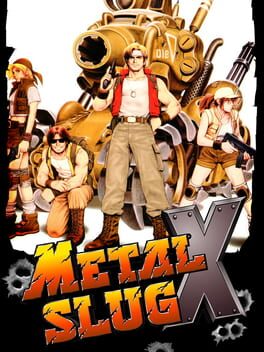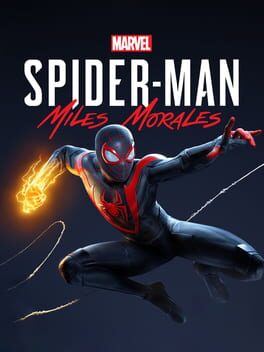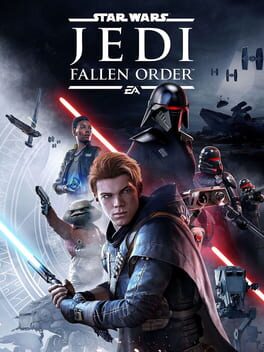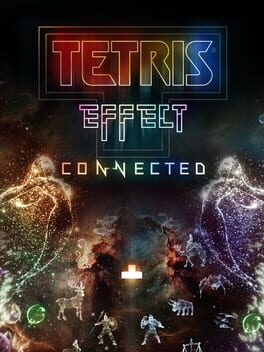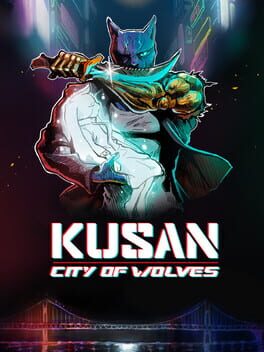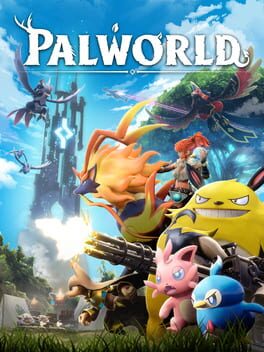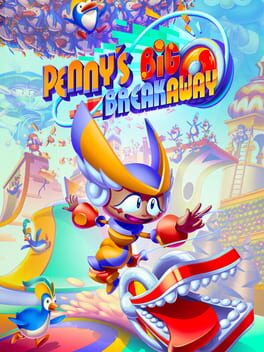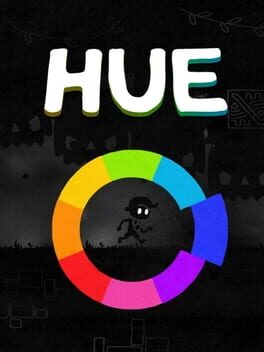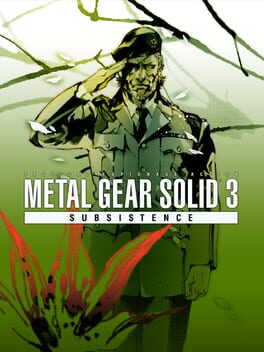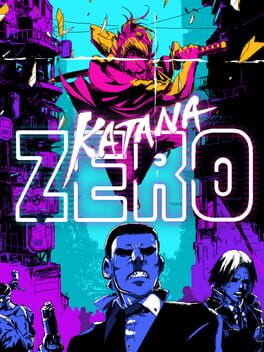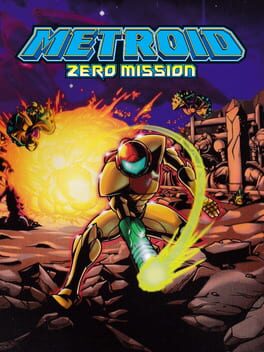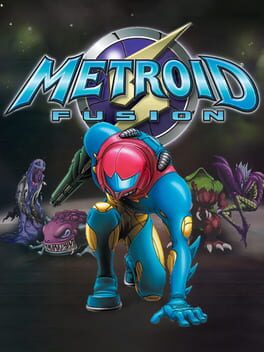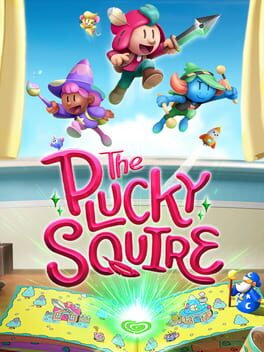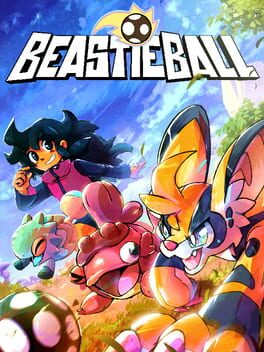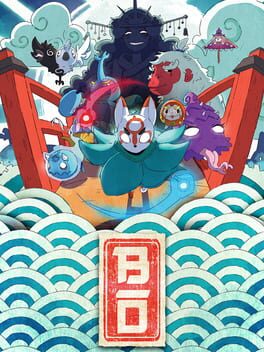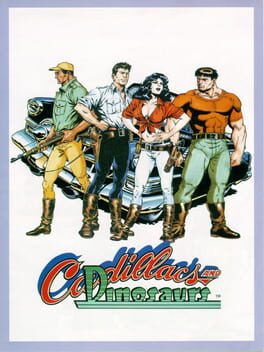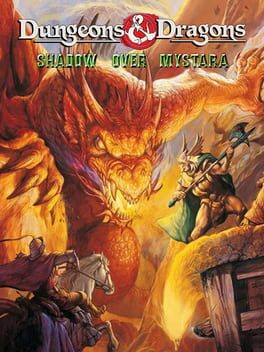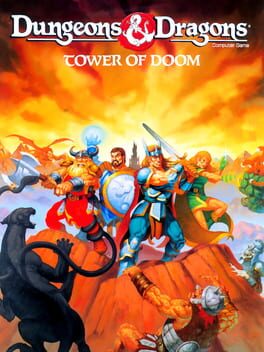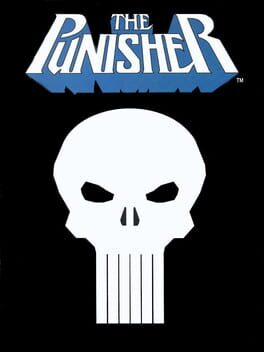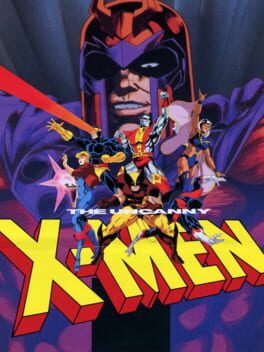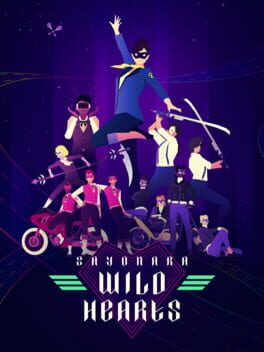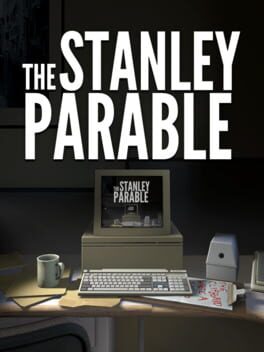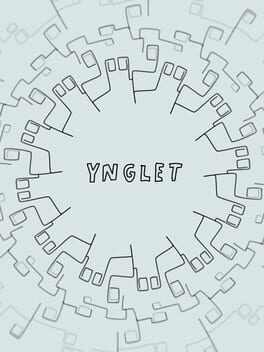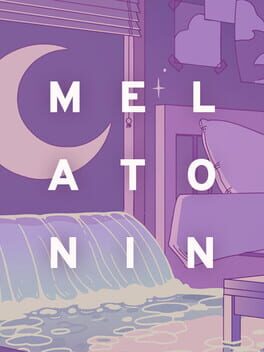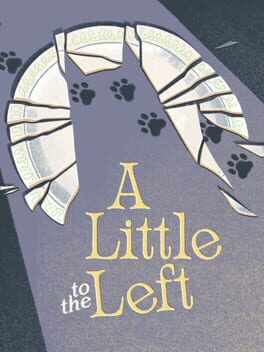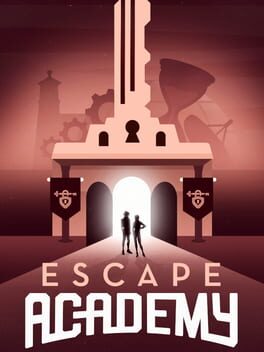raphaelmuniz
10 reviews liked by raphaelmuniz
Tinykin
2022
Tails Noir
2021
Tails Noir decepciona porque ele faz muito, ele é muito acima da média quando se fala de jogo indie, de um nicho tão específico como investigação, e o pior de tudo, ele começa tão bem, o começo do jogo é excelente, todo o primeiro capítulo na verdade brilha e promete um jogo memorável pra você, porém os outros capítulos não foram tão divertidos assim de simplesmente jogar. Eu realmente não me incomodo tanto com o fato do jogo ser meio que uma visual novel e não ter muitas mecânicas, mas a maneira que a história se desenvolve... isso sim me incomodou. Isso porque o enredo é muito promissor, a ambientação, as críticas sociais fazendo paralelos com o nosso mundo, o lance da muralha, a hierarquia com os macacos e os conflitos de cada personagem, tudo isso tá lá! Mas o jogo só não arranha isso. A história parece que esquece o que ela mesma tava tentando contar e termina literalmente sem fechar nenhum de seus plots, e isso, isso é péssimo, quase imperdoável.
Mas eu quero ser razoável e deixar bem claro que esse jogo me entreteu por boa parte dele, até quando o rumo da história muda drasticamente no capítulo 3, EU GOSTEI!! INCLUSIVE foi uma das partes que mais gostei, mas no final, do que adiantou? Do que adiantou todos aqueles textos intermináveis que eu li? Eu nem sequer fiquei sabendo o que realmente tava rolando por baixo dos panos.
Sla, o jogo deixa eu gosto amargo na boca porque o potencial dele era absurdo, ambientação noir é excelente, as músicas são sensacionais, o gráfico pixelado é simplesmente o melhor pixelart que eu já vi. Mas nada disso serve de nada se a história não condiz com todo esse esforço.
Mas eu quero ser razoável e deixar bem claro que esse jogo me entreteu por boa parte dele, até quando o rumo da história muda drasticamente no capítulo 3, EU GOSTEI!! INCLUSIVE foi uma das partes que mais gostei, mas no final, do que adiantou? Do que adiantou todos aqueles textos intermináveis que eu li? Eu nem sequer fiquei sabendo o que realmente tava rolando por baixo dos panos.
Sla, o jogo deixa eu gosto amargo na boca porque o potencial dele era absurdo, ambientação noir é excelente, as músicas são sensacionais, o gráfico pixelado é simplesmente o melhor pixelart que eu já vi. Mas nada disso serve de nada se a história não condiz com todo esse esforço.
Gris
2018
Art direction is stunning and musics are really strong and powerful, so much that they can make you feel emotions and you don't even know why. Gris' song is really beautiful and I will listen to it for quite a long time I think. Apart from that, the rest of the game is pretty decent gameplay and level design wise but it's clearly not the point of the game. So yeah, a pretty lovely game !
Gris
2018
Gris is a beautiful game. I do love it as an artsy depiction of grief without being on the nose about it. There's not a lick of dialogue involved in this game. That's all well and good, but the big problem here is that the game's theme isn't really clear throughout. I wasn't sure what it was about until I looked it up afterwards. And I don't think that diminishes the game's message, but I have to give it flak for that since it just kinda felt like "Oh cool, that was pretty" at the end. I feel like an Indie game missing the mark on its messaging is... strange. I feel like even if you knew it was about grief going in, you'd still see it wasn't obvious. All of the comments on the video of the secret ending I watched (which is missable due to collectables being required) were just along the lines of "Ohhh so that's what it's about" and I think that's a problem. Fine enough game though and the art is really genuinely beautiful.
Score: 80
Score: 80
Metal Slug X
1999
Florence
2018
This nonviolent game about becoming an adult after you've already come of age would be easier to digest if it wasn't from a company led by a known emotional abuser. I mean, you'd still have to accept its very middle-class fantasy approach to growing up and achieving your dreams, but it sounds good and looks nice and doesn't play quite like any other game I've played; even if I probably wouldn't play a longer game like this for, well, long, because when it comes down to it you're doing very simple things that would probably suit a flash game or something (and if I have to put together one more goddamn speech bubble, so help me god …).
The mechanics also sometimes seem ephemeral - for example I wonder how the relationship survived me replacing the girl’s family photo with the guy’s stupid action figure during moving in or the guy answering with a happy face when I put three sad faces as the girl; the gameplay often doesn't really matter much, is what I'm saying.
But the central relationship is exactly as cute and mostly believable as it has to be for what the game is trying to accomplish story-wise. Having gone through somewhat similar experiences, and being at the beginning of another relationship, there’s some inherent resonance in the story, especially on how the end isn't the end and life goes on, and how fulfilling and enjoyable it can be, even when it feels like that could never be. I didn't find the game not nearly deep enough to matter much, but there's enough verisimilitude to give the game some effect.
Just too bad about that abuse, y’know. From the person apparently still leading the company, y’know. Just too bad.
I think I regret giving them that one euro :>
The mechanics also sometimes seem ephemeral - for example I wonder how the relationship survived me replacing the girl’s family photo with the guy’s stupid action figure during moving in or the guy answering with a happy face when I put three sad faces as the girl; the gameplay often doesn't really matter much, is what I'm saying.
But the central relationship is exactly as cute and mostly believable as it has to be for what the game is trying to accomplish story-wise. Having gone through somewhat similar experiences, and being at the beginning of another relationship, there’s some inherent resonance in the story, especially on how the end isn't the end and life goes on, and how fulfilling and enjoyable it can be, even when it feels like that could never be. I didn't find the game not nearly deep enough to matter much, but there's enough verisimilitude to give the game some effect.
Just too bad about that abuse, y’know. From the person apparently still leading the company, y’know. Just too bad.
I think I regret giving them that one euro :>
First of all, Miles Morales is an insanely short game. When the game told me point blank that "this is the end of the story, make sure you're ready" outside of the Oscorp Science Center, I was legitimately stunned because I was only two sessions into my playthrough. In two nights' time, I was done with the entire campaign. Sure, I may have skipped over practically all of the side missions (because I frankly had very little interest or motivation to actually do them), but even so, that's pretty unacceptably brief for a game that was $50-$60 on launch, especially given the fact that this is just the previous Spiderman PS4 game but with a new coat of paint. Mechanically, visually, and tonally, so little has changed from its' 2018 predecessor that it puts Miles Morales in a uniquely 'unnecessary by existence' position. It's too long to be a DLC expansion pack, but it's too brief to be a full Triple-A game on its own, so it exists in this awkward middle ground that makes it feel like a bargain-bin direct-to-video sequel to the original.
And since very little has actually changed from the original, that unfortunately means all of the faintly buggy and questionable stuff has been left intact. Miles Morales' difficulty balancing is jarring, to say the least. Generic mooks do way too much damage, especially the ones with swords and the guns that lock you in place... and yet, you have a dedicated heal button that you can spam while doing combos. So either they made the enemies way too tanky to begin with and added the heal button as a bandaid, or realized the heal button made combat a joke and decided to bump up the enemies' damage output. Regardless of what came first, this leaves the game in a flimsy position where Miles is both way too weak and way too resilient. The stealth mechanics are mediocre (there is a dedicated "go invisible for free" button) and the Arkham-esque 'detective vision' is literally never used in any meaningful way. The only thing that works is the mobility, and to the game's credit, it's still pretty great. It's responsive, fun, flighty and weightless. It's barely a mechanic because it really is just spamming R2 in the air (no skill ceiling or learning curve to be found here), but I'm honestly okay with that. The issue with Miles Morales is that... well, this isn't new. The mobility feels just as good as it did back in 2018, and so nothing has really... changed. From a gameplay standpoint, there isn't much to be impressed by in Miles Morales that you couldn't already find in Spider-Man PS4.
This lack of forward momentum or ingenuity on the gameplay side of things puts the ball squarely in the court of the plot. And the plot is...
Look. Copaganda has always been a problem with superhero comics and stories, especially in the post-9/11 era of comic plotlines (and the gradual Disneyfication of Marvel), and Spider-Man in particular has always been weirdly infatuated with the police and the institution. This sinking feeling of "blue-lives-matter" was alarmingly present in the 2018 game that preceded this one (the truly cringeworthy "Spider-Cop" arc, anyone?), and it definitely carried over into Miles Morales, albeit in a more... subtle way.
See, here's the thing: Miles Morales tricks you into thinking it's gotten over that. Almost every major character in the game is a person of color (Peter Parker is notably absent for most of this game), save for the milkshake-white villain who clearly views minorities and second-class citizens as expendable at best. The only notable cop character relevant to this story - Miles' dad - passed away already. There's a Black Lives Matter graffiti mural on a wall somewhere. The bad guys are the Roxxon Corporation, a Big Tech company that's clearly comprised of a bunch of fascists and self-concerned capitalists. The finale's conflict is all about saving Harlem and other poor neighborhoods from being destroyed. That sounds progressive on paper. That sounds like it's a step in the right direction. But don't let that fool you in the same way that Hamilton's "colorblind casting" fooled millions into thinking it was woke. Miles Morales operates under the illusion of being progressive without the balls to actually commit to it, and that's largely because it just kind of... doesn't say anything meaningful at all about criminal justice, marginalized communities, or revolution.
(In fact, notice how the police are just... mysteriously absent from the plot? Period? Miles Morales handily avoided addressing the pro-cop problems of its predecessor by just... not having any cops around at all. Very clever!)
Practically all of these elements I just mentioned are superficial at best and don't contribute any meaningful dialogue in the slightest. The POC characters are mostly there for brownie points. Officer Jefferson Davis' death is undeniably considered a tragedy, and not the nuanced situation that it really is. That BLM mural has no impact or weight given that the villains are faceless, cartoonishly evil supersoldiers instead of the corrupt yt pigs that actually caused the movement to erupt in the first place. And according to the plot, the biggest reason behind the finale's conflict (where Harlem and Miles' neighborhood, by extension, are about to be destroyed by a haywire nuclear reactor) is... well...
The game pretends that Simon Krieger is the main antagonist of the game, but let's not kid ourselves here: Simon Krieger is a fucking joke. He's in the game for maybe ten minutes total (if that) and he spends all of his screentime being a boring discount Far Cry villain, complete with the constant fluctuation between smug "charisma" (a hack's understanding of charisma, anyway) and violent sociopathy. His goals are both generic and undefined at the same time, he barely interacts with any of the characters at all, and he gets unceremoniously arrested offscreen in the finale with no input at all from Miles. Krieger is a nobody, a fucking chump that no one will remember. Who cares?
No, the true antagonist of the game is, unfortunately, The Tinkerer, aka the only interesting aspect of this entire game. They went in a totally different direction for The Tinkerer this time around: instead of being some weird old man that never contributed much to the world of Spider-Man whatsoever, this time around The Tinkerer is Phin Mason, Miles' friend and a brilliant prodigy that created entire armories' worth of cutting-edge weaponry and cyberpunk tech in the hopes of spearheading a violent revolution against Roxxon. I'll give the game some credit here: that's a genuinely fresh idea, a bold place to take a C-Lister villain.
But let's see if you can spot the problem here. They decided the best use for a villain... was to make them a revolutionary. Do you see the problem? If you don't, then you might be the problem.
The more we learn about Phin, the more sympathetic and justified her motives become. She's obsessed with taking down both Roxxon and Nuform, a brand-new power source being developed by Roxxon. See, Nuform makes people incredibly sick, and Phin knows this because her brother (who happened to be one of the lead designers of Nuform before having a change of heart) became incredibly ill after continued exposure to Nuform. The two of them attempted to destroy the Nuform reactor and reveal all of Roxxon's dirty laundry, but Krieger had Phin's brother murdered and Phin was forced to go on the run.
So Phin has a clear-cut motive, a justifiable cause, and both the will and the intelligence to carry out her goal of stopping an undeniably-evil corporation. She even has a pretty good plan: she intends to overload and destroy the Nuform reactor in the heart of a Roxxon plaza, and she intends to do so before it opens up to the public, therefore minimizing casualties and overall damage. Wow! She sounds great! In what way, shape, or form is she supposed to be the bad guy?
Well, don't you worry, the plot has that ground covered, and it does so in the most insulting and contrived way imaginable. See, unbeknownst to Phin, the reactor will probably vaporize all of Harlem if it explodes, because Krieger secretly modified the reactor to destroy of Harlem, for... idk, evil reasons, I guess. And because of this singular issue that Phin doesn't know and also has no way of knowing, the game decides that Phin must be stopped, that her methods are wrong. Miles tries to argue that the best way to take down Roxxon is by letting the media and the law dispose of them, that going public with evidence of their misdeeds is the safest and cleanest way to kill the beast. But neither Miles nor the game considers, even for a second, that this literally wouldn't fucking matter. How many times in the real world have we heard about big companies committing atrocities in the name of the profit? Hundreds. How many times have those companies just shrugged it off and gotten away with it? Every time. Even if Krieger himself is taken down and arrested, there are doubtlessly plenty of evil Elon Musk clones at Roxxon waiting in line to take his place.
And here's another thing the game never considers (largely because it's a huge plothole): why is Roxxon here? Like, why are they in Harlem? Who let them in? Who made the choice to let this incredibly dangerous paramilitary organization set up shop in New York City? Well... it's obvious, isn't it? The police. The government. The state. Now, the game literally never brings attention to this (Roxxon just shows up, out of thin air, and no one ever questions who gave them the authority to do so), but I was smart enough to realize that, realistically speaking, the only reason Krieger would be allowed to put a fucking nuclear reactor in Harlem would be because he got carte blanche to do whatever he wanted by the state.
Do you understand? Even if Miles hands Krieger over to the police, that wouldn't fucking matter. The police are in Krieger's pocket, too, because if NYC were the ones that let Krieger in... well, by extension, so are the police. That implies that Roxxon is a much, much deeper conspiracy thanjust "random soldier men that showed up to cause problems for money". There are systems in place that put Roxxon there, and those same systems will undeniably protect Roxxon so long as it serves their interests.
Phin was right. Phin was 100% right. The violent route was, is, and always has been, the way to go. In our real world, in our actual, current reality, hundreds of megacorporations get away with murder because they're powerful, because they have connections, and because they put on a charming smile and sell products that the everyman loves. Disney, Amazon, Nestle, BP Oil, et cetera et cetera. Even if the world knew that Krieger was a murderer, even if everything about Nuform's toxicity was unveiled to the public... who cares? All it would take is the Vice President of Roxxon stepping in and saying, with a charming smile: "I am truly mortified by my predecessor's actions, and we will do everything in our power to make amends and make a brighter future for everyone!" And guess what? Realistically, the average person would be appeased by that.
But no. Because of something that Phin would have had no logical way of knowing, because of something that wasn't even her fault, Phin not only has to be stopped, but she has to be killed at the end of the plot, by sacrificing herself in a way that the story seems to think makes up for all of its' backhanded criticism against her morally-justified acts of rebellion. Phin doesn't even get a grave, but Officer Jefferson gets a fucking memorial. Phin is ultimately demonized by the plot, and yet Krieger is merely arrested offscreen and treated as a joke villain that we don't have to take too seriously. Roxxon presumably falls apart offscreen quietly (yeah sure, okay), and nothing surrounding them or their existence is interrogated. Phin and the Underground's violent actions are criticized far more plainly and frequently than anything the generic Roxxon goon does (you wind up fighting the Underground way more often than you fight Roxxon), and Miles walks out of the whole experience feeling more conflicted about his feelings on Phin herself than about anything that actually happened. Miles ultimately isn't forced to change his perspective or broaden his horizon because of the events of the plot. Nope. He just keeps on being the exact same naive Spiderman he's always been, keeps on helping Peter Parker suck off the police and ensuring the broken status quo remains that way in perpetuity. After all, what's a Spider-Cop without his deputy?
Am I surprised that yet another superhero story winds up being a right-winger's wet fantasy? No, this happens all the fucking time. But am I disappointed? Yes, because this had the nerve to masquerade as being woke and leftist. Even though this game loves the Powers That Be and constantly incentivizes you to beat the shit out of the oppressed and marginalized, it still has the audacity to throw in BLM murals and people-of-color as if that absolves them of anything. It has the gall to make The Tinkerer an empathetic and humanizing underdog motivated by direct action and personal tragedy, and then, in the same breath, manipulatively chastise and murder her when she "goes too far". And it has the nerve to do all of this in a glorified DLC to a game that was already a bunch of quippy, uncanny-valley copaganda. In summation? Boy howdy, it sure made me feel like Spiderman.
(Narrowly given 2 stars because there are no Mary Jane-style side missions and you get to pet a cat.)
And since very little has actually changed from the original, that unfortunately means all of the faintly buggy and questionable stuff has been left intact. Miles Morales' difficulty balancing is jarring, to say the least. Generic mooks do way too much damage, especially the ones with swords and the guns that lock you in place... and yet, you have a dedicated heal button that you can spam while doing combos. So either they made the enemies way too tanky to begin with and added the heal button as a bandaid, or realized the heal button made combat a joke and decided to bump up the enemies' damage output. Regardless of what came first, this leaves the game in a flimsy position where Miles is both way too weak and way too resilient. The stealth mechanics are mediocre (there is a dedicated "go invisible for free" button) and the Arkham-esque 'detective vision' is literally never used in any meaningful way. The only thing that works is the mobility, and to the game's credit, it's still pretty great. It's responsive, fun, flighty and weightless. It's barely a mechanic because it really is just spamming R2 in the air (no skill ceiling or learning curve to be found here), but I'm honestly okay with that. The issue with Miles Morales is that... well, this isn't new. The mobility feels just as good as it did back in 2018, and so nothing has really... changed. From a gameplay standpoint, there isn't much to be impressed by in Miles Morales that you couldn't already find in Spider-Man PS4.
This lack of forward momentum or ingenuity on the gameplay side of things puts the ball squarely in the court of the plot. And the plot is...
Look. Copaganda has always been a problem with superhero comics and stories, especially in the post-9/11 era of comic plotlines (and the gradual Disneyfication of Marvel), and Spider-Man in particular has always been weirdly infatuated with the police and the institution. This sinking feeling of "blue-lives-matter" was alarmingly present in the 2018 game that preceded this one (the truly cringeworthy "Spider-Cop" arc, anyone?), and it definitely carried over into Miles Morales, albeit in a more... subtle way.
See, here's the thing: Miles Morales tricks you into thinking it's gotten over that. Almost every major character in the game is a person of color (Peter Parker is notably absent for most of this game), save for the milkshake-white villain who clearly views minorities and second-class citizens as expendable at best. The only notable cop character relevant to this story - Miles' dad - passed away already. There's a Black Lives Matter graffiti mural on a wall somewhere. The bad guys are the Roxxon Corporation, a Big Tech company that's clearly comprised of a bunch of fascists and self-concerned capitalists. The finale's conflict is all about saving Harlem and other poor neighborhoods from being destroyed. That sounds progressive on paper. That sounds like it's a step in the right direction. But don't let that fool you in the same way that Hamilton's "colorblind casting" fooled millions into thinking it was woke. Miles Morales operates under the illusion of being progressive without the balls to actually commit to it, and that's largely because it just kind of... doesn't say anything meaningful at all about criminal justice, marginalized communities, or revolution.
(In fact, notice how the police are just... mysteriously absent from the plot? Period? Miles Morales handily avoided addressing the pro-cop problems of its predecessor by just... not having any cops around at all. Very clever!)
Practically all of these elements I just mentioned are superficial at best and don't contribute any meaningful dialogue in the slightest. The POC characters are mostly there for brownie points. Officer Jefferson Davis' death is undeniably considered a tragedy, and not the nuanced situation that it really is. That BLM mural has no impact or weight given that the villains are faceless, cartoonishly evil supersoldiers instead of the corrupt yt pigs that actually caused the movement to erupt in the first place. And according to the plot, the biggest reason behind the finale's conflict (where Harlem and Miles' neighborhood, by extension, are about to be destroyed by a haywire nuclear reactor) is... well...
The game pretends that Simon Krieger is the main antagonist of the game, but let's not kid ourselves here: Simon Krieger is a fucking joke. He's in the game for maybe ten minutes total (if that) and he spends all of his screentime being a boring discount Far Cry villain, complete with the constant fluctuation between smug "charisma" (a hack's understanding of charisma, anyway) and violent sociopathy. His goals are both generic and undefined at the same time, he barely interacts with any of the characters at all, and he gets unceremoniously arrested offscreen in the finale with no input at all from Miles. Krieger is a nobody, a fucking chump that no one will remember. Who cares?
No, the true antagonist of the game is, unfortunately, The Tinkerer, aka the only interesting aspect of this entire game. They went in a totally different direction for The Tinkerer this time around: instead of being some weird old man that never contributed much to the world of Spider-Man whatsoever, this time around The Tinkerer is Phin Mason, Miles' friend and a brilliant prodigy that created entire armories' worth of cutting-edge weaponry and cyberpunk tech in the hopes of spearheading a violent revolution against Roxxon. I'll give the game some credit here: that's a genuinely fresh idea, a bold place to take a C-Lister villain.
But let's see if you can spot the problem here. They decided the best use for a villain... was to make them a revolutionary. Do you see the problem? If you don't, then you might be the problem.
The more we learn about Phin, the more sympathetic and justified her motives become. She's obsessed with taking down both Roxxon and Nuform, a brand-new power source being developed by Roxxon. See, Nuform makes people incredibly sick, and Phin knows this because her brother (who happened to be one of the lead designers of Nuform before having a change of heart) became incredibly ill after continued exposure to Nuform. The two of them attempted to destroy the Nuform reactor and reveal all of Roxxon's dirty laundry, but Krieger had Phin's brother murdered and Phin was forced to go on the run.
So Phin has a clear-cut motive, a justifiable cause, and both the will and the intelligence to carry out her goal of stopping an undeniably-evil corporation. She even has a pretty good plan: she intends to overload and destroy the Nuform reactor in the heart of a Roxxon plaza, and she intends to do so before it opens up to the public, therefore minimizing casualties and overall damage. Wow! She sounds great! In what way, shape, or form is she supposed to be the bad guy?
Well, don't you worry, the plot has that ground covered, and it does so in the most insulting and contrived way imaginable. See, unbeknownst to Phin, the reactor will probably vaporize all of Harlem if it explodes, because Krieger secretly modified the reactor to destroy of Harlem, for... idk, evil reasons, I guess. And because of this singular issue that Phin doesn't know and also has no way of knowing, the game decides that Phin must be stopped, that her methods are wrong. Miles tries to argue that the best way to take down Roxxon is by letting the media and the law dispose of them, that going public with evidence of their misdeeds is the safest and cleanest way to kill the beast. But neither Miles nor the game considers, even for a second, that this literally wouldn't fucking matter. How many times in the real world have we heard about big companies committing atrocities in the name of the profit? Hundreds. How many times have those companies just shrugged it off and gotten away with it? Every time. Even if Krieger himself is taken down and arrested, there are doubtlessly plenty of evil Elon Musk clones at Roxxon waiting in line to take his place.
And here's another thing the game never considers (largely because it's a huge plothole): why is Roxxon here? Like, why are they in Harlem? Who let them in? Who made the choice to let this incredibly dangerous paramilitary organization set up shop in New York City? Well... it's obvious, isn't it? The police. The government. The state. Now, the game literally never brings attention to this (Roxxon just shows up, out of thin air, and no one ever questions who gave them the authority to do so), but I was smart enough to realize that, realistically speaking, the only reason Krieger would be allowed to put a fucking nuclear reactor in Harlem would be because he got carte blanche to do whatever he wanted by the state.
Do you understand? Even if Miles hands Krieger over to the police, that wouldn't fucking matter. The police are in Krieger's pocket, too, because if NYC were the ones that let Krieger in... well, by extension, so are the police. That implies that Roxxon is a much, much deeper conspiracy thanjust "random soldier men that showed up to cause problems for money". There are systems in place that put Roxxon there, and those same systems will undeniably protect Roxxon so long as it serves their interests.
Phin was right. Phin was 100% right. The violent route was, is, and always has been, the way to go. In our real world, in our actual, current reality, hundreds of megacorporations get away with murder because they're powerful, because they have connections, and because they put on a charming smile and sell products that the everyman loves. Disney, Amazon, Nestle, BP Oil, et cetera et cetera. Even if the world knew that Krieger was a murderer, even if everything about Nuform's toxicity was unveiled to the public... who cares? All it would take is the Vice President of Roxxon stepping in and saying, with a charming smile: "I am truly mortified by my predecessor's actions, and we will do everything in our power to make amends and make a brighter future for everyone!" And guess what? Realistically, the average person would be appeased by that.
But no. Because of something that Phin would have had no logical way of knowing, because of something that wasn't even her fault, Phin not only has to be stopped, but she has to be killed at the end of the plot, by sacrificing herself in a way that the story seems to think makes up for all of its' backhanded criticism against her morally-justified acts of rebellion. Phin doesn't even get a grave, but Officer Jefferson gets a fucking memorial. Phin is ultimately demonized by the plot, and yet Krieger is merely arrested offscreen and treated as a joke villain that we don't have to take too seriously. Roxxon presumably falls apart offscreen quietly (yeah sure, okay), and nothing surrounding them or their existence is interrogated. Phin and the Underground's violent actions are criticized far more plainly and frequently than anything the generic Roxxon goon does (you wind up fighting the Underground way more often than you fight Roxxon), and Miles walks out of the whole experience feeling more conflicted about his feelings on Phin herself than about anything that actually happened. Miles ultimately isn't forced to change his perspective or broaden his horizon because of the events of the plot. Nope. He just keeps on being the exact same naive Spiderman he's always been, keeps on helping Peter Parker suck off the police and ensuring the broken status quo remains that way in perpetuity. After all, what's a Spider-Cop without his deputy?
Am I surprised that yet another superhero story winds up being a right-winger's wet fantasy? No, this happens all the fucking time. But am I disappointed? Yes, because this had the nerve to masquerade as being woke and leftist. Even though this game loves the Powers That Be and constantly incentivizes you to beat the shit out of the oppressed and marginalized, it still has the audacity to throw in BLM murals and people-of-color as if that absolves them of anything. It has the gall to make The Tinkerer an empathetic and humanizing underdog motivated by direct action and personal tragedy, and then, in the same breath, manipulatively chastise and murder her when she "goes too far". And it has the nerve to do all of this in a glorified DLC to a game that was already a bunch of quippy, uncanny-valley copaganda. In summation? Boy howdy, it sure made me feel like Spiderman.
(Narrowly given 2 stars because there are no Mary Jane-style side missions and you get to pet a cat.)
Cantando pro meu robozinho o jogo todo "bom dia meu bd, te amo meu bd"
Divertido demais esse, não achei que ia gostar tanto. Sabe capturar bem as coisas que fazem o universo de star wars serem legais. As homenagens e referências são bem dosadas pra não ficar chato e deixar o jogo contar a sua própria história.
Talvez falte um pouco de polimento e acho que com algumas melhorias de gameplay aqui e ali, tipo um combate um pouco menos truncado e menos bugs esse jogo ficaria ainda melhor.
Tirando uma parte ou outra com inimigos MUITO CHATOS, eu gostei bastante de tudo.
Vai ter uma sequência, né? Boto fé que tem tudo pra ser ainda mais legal o próximo jogo.
Divertido demais esse, não achei que ia gostar tanto. Sabe capturar bem as coisas que fazem o universo de star wars serem legais. As homenagens e referências são bem dosadas pra não ficar chato e deixar o jogo contar a sua própria história.
Talvez falte um pouco de polimento e acho que com algumas melhorias de gameplay aqui e ali, tipo um combate um pouco menos truncado e menos bugs esse jogo ficaria ainda melhor.
Tirando uma parte ou outra com inimigos MUITO CHATOS, eu gostei bastante de tudo.
Vai ter uma sequência, né? Boto fé que tem tudo pra ser ainda mais legal o próximo jogo.
